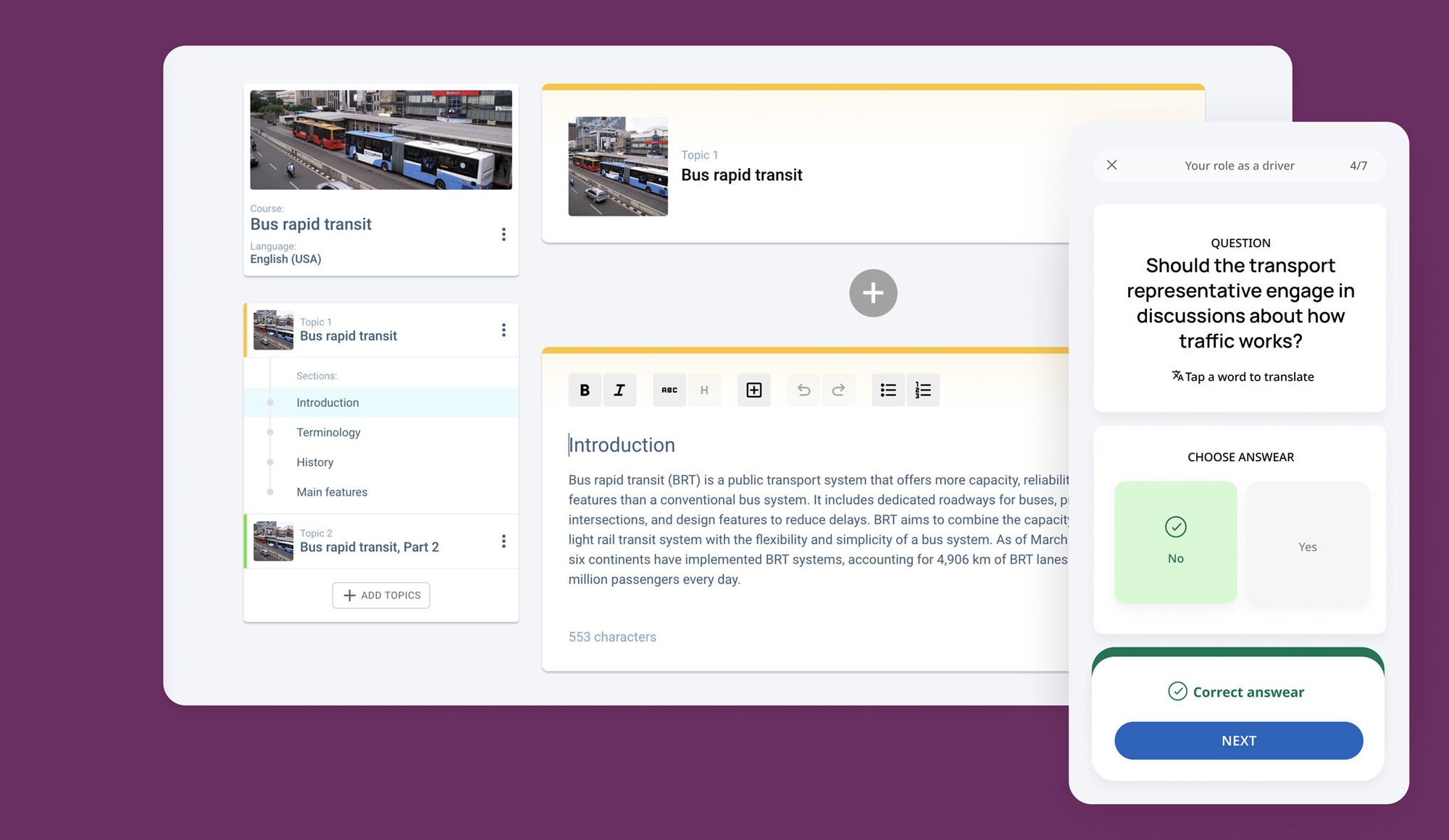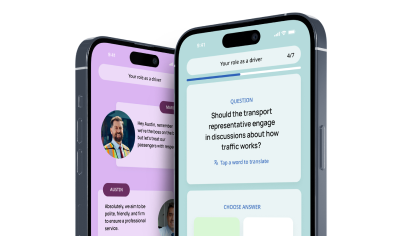Top 10 skills training approaches for 2024
Now, let's explore the ten best approaches to skills training that companies should consider testing in 2024. These strategies are crafted to meet the evolving demands of the modern workforce and the changing landscape of industry needs, ensuring that your team keeps pace and excels.
1. Microlearning: leveraging bite-sized learning modules
Microlearning involves breaking down learning content into bite-sized modules. By delivering information in small, easily digestible chunks, employees can learn quickly and retain information more effectively. Whether through short videos, interactive quizzes, or infographics, microlearning provides a convenient and engaging way for staff to acquire new skills.
2. Gamification: making learning fun and competitive
Who said learning can't be fun? Gamification adds an element of competition and excitement to skills training programs. Incorporating game-like elements such as leaderboards, badges, and rewards motivates employees to participate and achieve learning goals actively. This approach enhances engagement and fosters a positive learning culture within the organisation.
3. Mobile learning: anytime, anywhere training accessibility
Today, employees expect learning to be accessible anytime, anywhere. Mobile learning allows staff to access training materials through smartphones or tablets, making learning more flexible and convenient. Whether through mobile apps, responsive websites, or even virtual reality experiences, this approach enables employees to know on the go and fits seamlessly into their busy schedules.
4. Social learning: encouraging peer-to-peer knowledge exchange
Learning doesn't always have to happen in a formal classroom setting. Social learning promotes knowledge sharing and collaboration among employees. By facilitating platforms for peer-to-peer discussions, forums, and online communities, companies can tap into the collective wisdom of their workforce. This approach fosters a culture of continuous learning and encourages employees to learn from one another's experiences.
5. Blended learning: combining digital and traditional methods
Blended learning combines the best of both worlds by integrating digital and traditional training methods. This approach allows companies to leverage the benefits of online resources, such as e-learning modules and virtual classrooms, while offering in-person workshops and seminars. By striking the right balance between digital and traditional training, companies can cater to different learning preferences and maximise learning outcomes.
6. Virtual Reality (VR) and Augmented Reality (AR): immersive learning experiences
Virtual reality and augmented reality are revolutionising the way we learn. By creating immersive and interactive learning experiences, employees can gain practical skills in a simulated environment. Whether it's training for complex procedures or enhancing soft skills through role-playing scenarios, VR and AR provide a unique and engaging approach to skills training.
7. Artificial Intelligence (AI)-powered platforms: personalised learning paths
Artificial intelligence-powered platforms are transforming the way learning content is delivered and personalised. AI can provide employees with personalised learning paths tailored to their needs by analysing individual performance, preferences, and learning styles. This approach ensures that each employee receives targeted training, maximising their learning potential and overall skill development.
8. Project-based learning: real-world problem solving
Project-based learning immerses employees in real-world problem-solving scenarios. By working on projects that directly contribute to the company's objectives, employees acquire new skills and apply them in practical situations. This approach enhances critical thinking, collaboration, and innovation, making it an effective way to develop well-rounded professionals.
9. Continuous feedback loops: real-time learning adjustments
Feedback is integral to effective learning. Continuous feedback loops provide employees with real-time insights into their progress and areas for improvement. By implementing regular feedback sessions and assessments, companies can ensure that skills training programs are aligned with individual needs and evolving business requirements. This approach allows for agile adjustments in learning strategies, maximising the impact of training initiatives.
10. Cross-functional training: broadening skill sets across departments
Cross-functional training is becoming increasingly important. Companies can foster collaboration and enable a more versatile workforce by providing opportunities for employees to learn skills outside their core disciplines. This approach enhances employee engagement, facilitates knowledge transfer, and creates a talent pool that addresses diverse business needs.
While these ten approaches are highly effective in skills training, it's essential to consider the broader context in which they are implemented. Factors such as company culture, employee motivation, and resource availability can significantly influence the success of these training programs.
Furthermore, it's worth noting that skills training is not a one-size-fits-all solution. Different industries and job roles may require specific training approaches tailored to their unique requirements. Therefore, companies must conduct thorough needs assessments and consult with subject matter experts to determine the most suitable training methods for their workforce.



